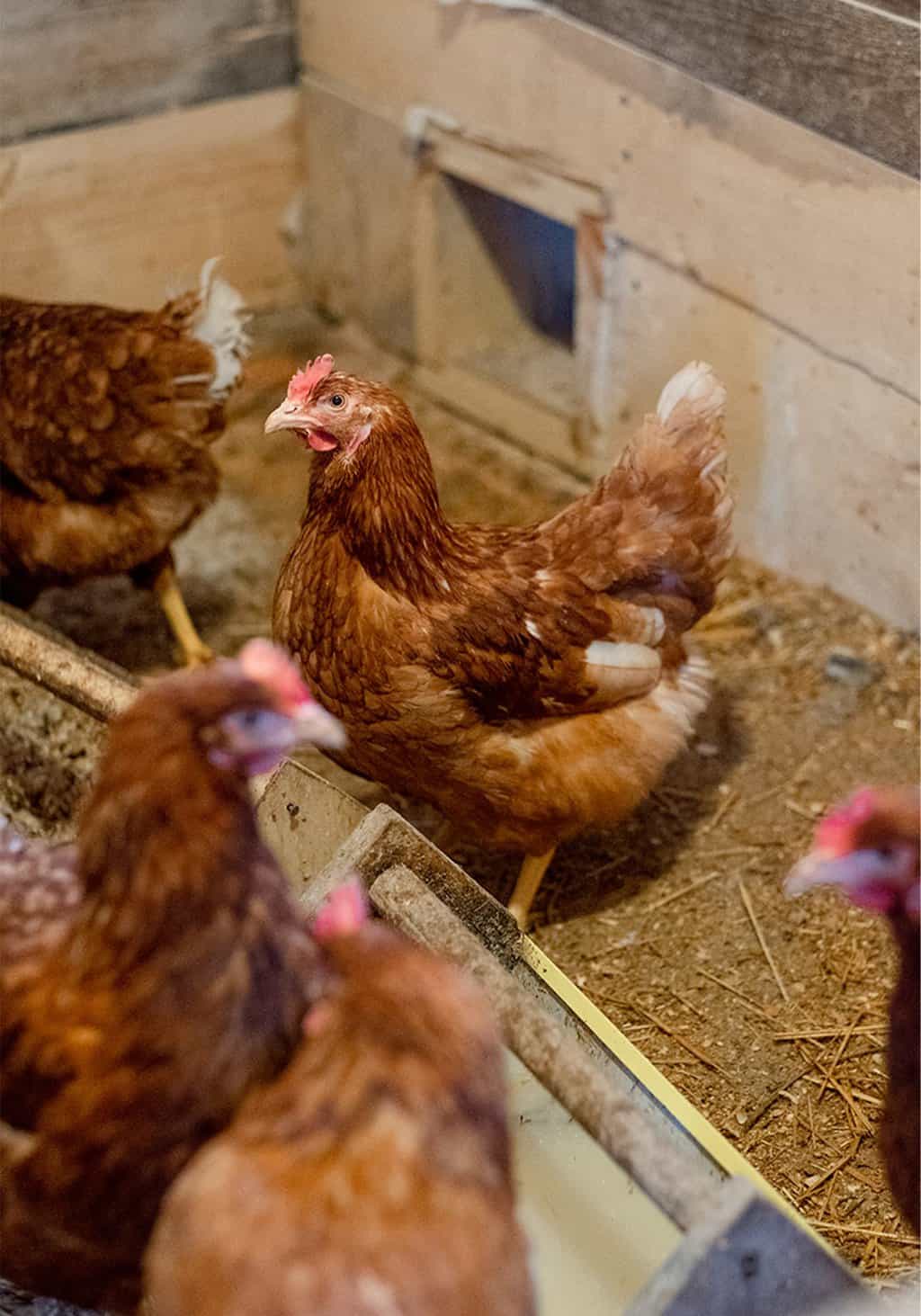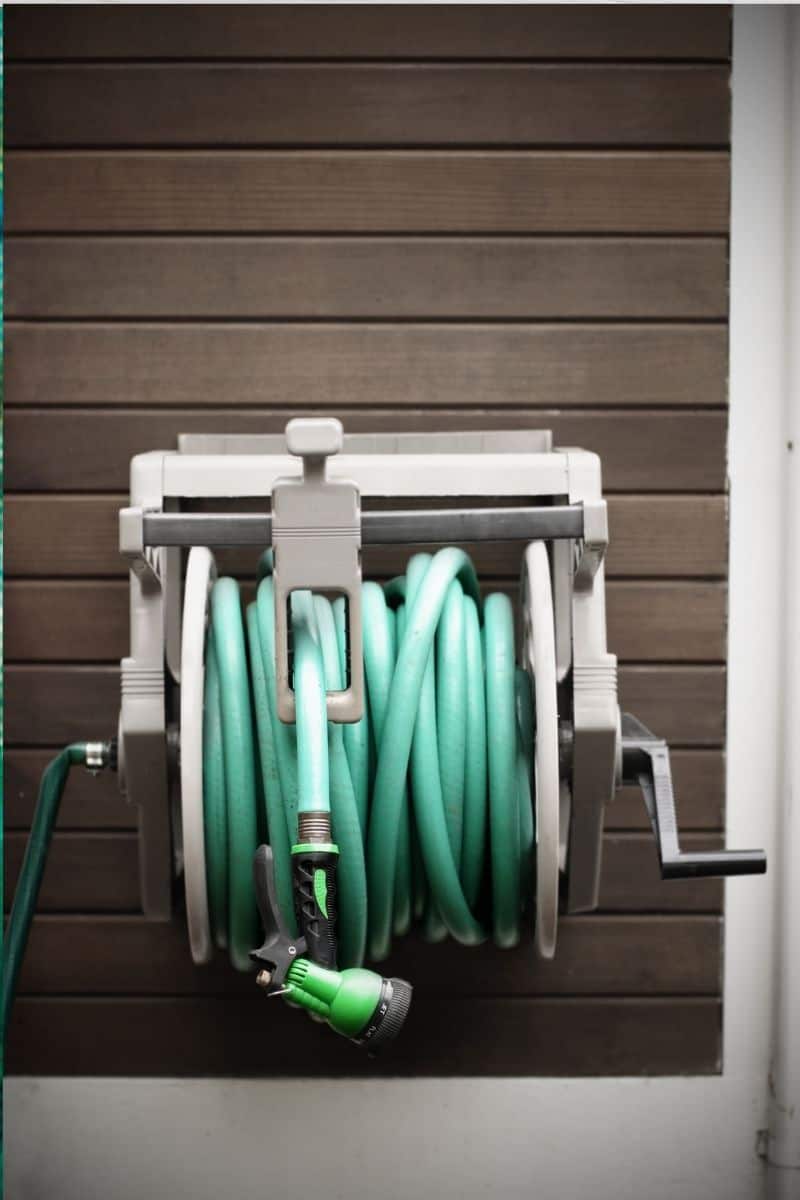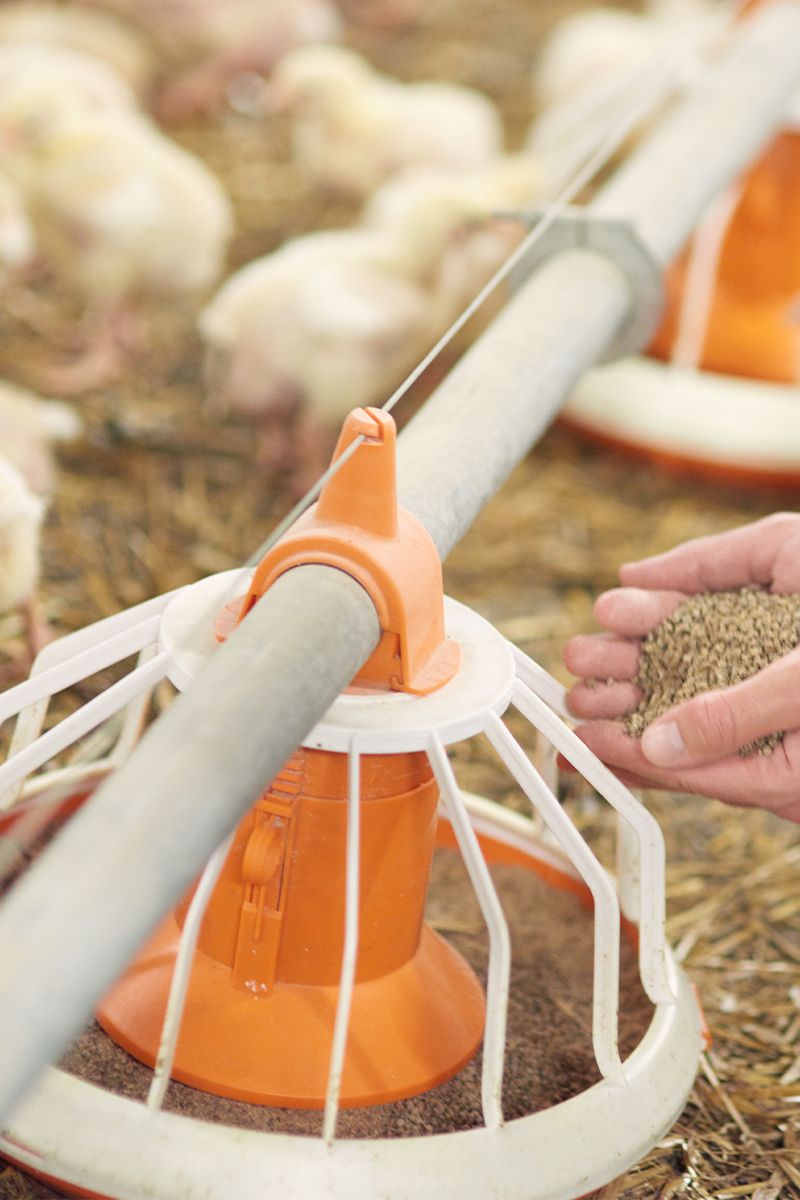For all the skeptics out there who want to know, “How long do farm fresh eggs last?” let me assure you that the answer is more than satisfactory.

It turns out that proper refrigeration can mean your farm-fresh eggs could last for up to a whopping six weeks. So don’t be fooled by those supermarket eggs with a three-week stamp of approval, because you can trust in the farm-fresh selection without worrying about expiration dates.
Whether you’ve gone out to the local farm yourself or had the eggs delivered straight to your door, rest assured that with proper storage and handling, you won’t have to egg spire your enjoyment anytime soon.
In this article, we will discuss the benefits of buying farm-fresh eggs, how long they can last, and some tips for proper storage.
Factors Affecting the Shelf Life of Fresh Farm Eggs

Before we delve into the details of farm-fresh egg life expectancy, let’s take a look at some of the factors that can affect it.
Eggshell condition
The eggs you get from the farm should always have nice, undamaged shells. If an eggshell is cracked or broken, it’s best to discard it or use it right away as the shell provides a protective barrier that keeps bacteria out.
Storage conditions
The temperature and humidity in which the eggs are stored can also have an impact on their shelf life. Ideally, you should store your farm-fresh eggs at a temperature between 33 and 41 degrees Fahrenheit, with a relative humidity of 65 to 70 percent.
Age of the egg
It’s important to note that eggs can last for up to six weeks but the longer they are stored, the higher the risk of deterioration and spoilage. If there is an expiration date on the carton, make sure to check it before you buy and use the eggs within this time frame.
Presence of bacteria
Another factor to consider is the presence of bacteria on the eggshell. Before storing farm-fresh eggs, it is essential to ensure that they have been thoroughly washed and cleaned. If the eggshell has any dirt or contaminants present on it, its shelf life can drastically reduce.
How Long Do Farm Fresh Eggs Last?

It is crucial to remember that farm-fresh eggs will stay fresh for longer than store-bought ones due to their greater level of freshness. However, some other external influences can influence the longevity of these eggs.
Shelf life of refrigerated eggs
Farm fresh eggs can last up to six weeks in the refrigerator, provided they are stored properly. If you don’t plan on eating them within this time frame, you can freeze them for up to a year.
To keep the quality of your eggs intact, make sure that they are stored in the coolest areas of your refrigerator and avoid direct contact with air.
Shelf life of unrefrigerated eggs
Retain the freshness of your farm-fresh eggs by storing them at room temperature, and they will last up to two weeks.
Don’t forget that higher temperatures accelerate spoilage, so keep your eggs in a cool spot away from direct sunlight or other sources of heat. With this simple tip, you’ll be sure to enjoy delicious egg dishes for days.
Factors that can affect the shelf life of eggs
Aside from proper storage, other factors can influence the shelf life of fresh farm eggs. For one, age is an important factor as eggs can last up to six weeks when stored in the refrigerator.
Furthermore, if your eggs have a cracked shell or are otherwise damaged, they should be used right away or discarded.
Lastly, the presence of bacteria on the eggshell can also cause it to spoil faster, so make sure to thoroughly clean them before storing.
How To Tell if Fresh Farm Eggs Have Gone Bad

There are several ways to tell if a farm fresh egg has gone bad.
Appearance
To ensure the freshness of your eggs, inspect each eggshell for any signs of cracking, slime, or discoloration. If present then discard them immediately.
Smell
The most obvious sign is a foul smell when you crack it open, which means you should not eat the egg. If the egg smells bad or sour then it has gone bad and should not be eaten.
The float test
Another way to tell if a farm fresh egg has gone bad is to place it in a bowl of cold water. This egg float test does not guarantee the safety of your eggs but rather provides an approximated estimate of their age.
If you observe that the egg floats in the bowl, it’s already bad, and you should immediately discard it. On the contrary, if you keep it at the bottom, then its freshness will remain intact and give you a delicious breakfast to start your day!
Let’s discuss the science behind it. If left in the refrigerator or on a counter, an egg’s moisture and water will start to evaporate. This leads to the shell membrane pulling away from the exterior of the egg while the air fills that space instead.
In time, all its liquid content will vanish – leaving nothing but a dehydrated yolk inside the now-empty shell. So when you drop one into a glass filled with water, and it sinks to the bottom, laying on its side, then you know it hasn’t dehydrated much – indicating that it’s very fresh.
Alternatively, if your egg floats in the water, it denotes that air has seeped into its shell due to a considerable amount of evaporation. In such cases, you should avoid consuming these eggs as they are not safe for consumption.
How To Properly Store Farm-Fresh Eggs

To ensure the longevity and safety of your farm-fresh eggs, it’s important to store them properly. Proper storage techniques will help prevent the egg from going bad and keep them fresher, for longer. Here are some tips on how to store farm-fresh eggs:
Refrigeration
To ensure that your eggs stay fresh, be sure to keep them in the coldest location of your refrigerator, with a temperature between 34-38°F.
Make sure not to store them on the door, as this area is subject to higher temperatures every time you open it.
Additionally, make sure that they are in their original carton or another enclosed container so other food items do not contaminate them.
It’s advisable to label the egg container before placing it in the refrigerator so you can monitor how long they have been there.
Additionally, remove them from the fridge a few minutes before using; allowing them to return closer to room temperature makes their proteins more manageable and improves their structure during cooking.
Keeping eggs in their original carton
It’s important to keep eggs in their original carton so that you know the date of collection and can accurately track their shelf life. Furthermore, the carton protects the eggs from cracking or damage, which can lead to spoilage.
Additionally, it also helps to keep out odors and bacteria that can cause the eggs to spoil. Lastly, storing eggs in their carton will help preserve their moisture and integrity so they remain fresh for longer.
When storing eggs, make sure to put the carton in an airtight container or plastic bag before putting it into the refrigerator. This will help to maintain a higher level of freshness and prevent any other food odor from mixing with the eggs. Also, make sure you use them within the recommended best-by date.
Avoiding temperature fluctuations
It is important to avoid temperature fluctuations when storing farm-fresh eggs, as extreme changes in temperature can cause the eggshell to break down and lead to spoilage.
To prevent this from happening, keep your eggs stored away from heat sources such as direct sunlight and ovens. Additionally, always store your eggs at a consistent temperature -below 40°F – and make sure to refrigerate them immediately if you are not using them.
Lastly, always double-check that the temperature of your storage location does not exceed 40°F, as this can also cause the eggs to spoil.
Proper cleaning and sanitizing of eggs
Proper cleaning and sanitizing of eggs are essential to ensure safe food handling. When cleaning eggs, use a clean cloth or brush to remove any dirt or debris gently.
Additionally, make sure to use only warm water (not hot) to avoid damaging the delicate eggshell. After cleaning, use a food-grade sanitizing solution such as diluted bleach or vinegar and water to sanitize the eggs.
Ensure all areas of the egg has the sanitizing solution and let them sit for at least 30 seconds before rinsing them off with clean, warm water.
Be sure to thoroughly cleanse the eggshell of all dirt and manure, as these bacteria can quickly spoil the egg if left behind. Be sure you dry and cool them quickly after washing them.
Lastly, make sure to dry the eggs using a paper towel before storing them in the refrigerator. By executing the steps outlined below, you can guarantee that your farm-fresh eggs remain safe and retain their freshness for a longer period.
Conclusion
Delicious and nutritious farm-fresh eggs provide an unmatched flavor, but the shelf life of these delicious treats can differ depending on multiple factors.
To ensure that you get to relish in their amazing taste for weeks, it is essential to store them correctly and check for any signs of spoilage before consuming the eggs.
Follow this advice, and you will be able to enjoy fresh farm eggs whenever your heart desires.
By following these simple guidelines, you can guarantee that your farm-fresh eggs will stay fresh and delicious for days. And with the help of proper cleaning and sanitizing, you can ensure that your eggs remain safe for consumption.
So go ahead and stock up on farm-fresh eggs and enjoy them as part of a healthy and nutritious diet.



